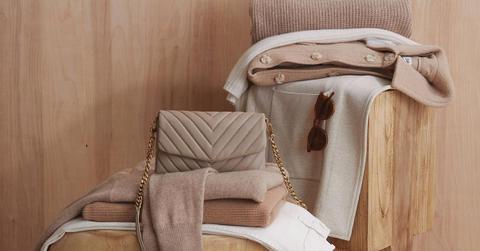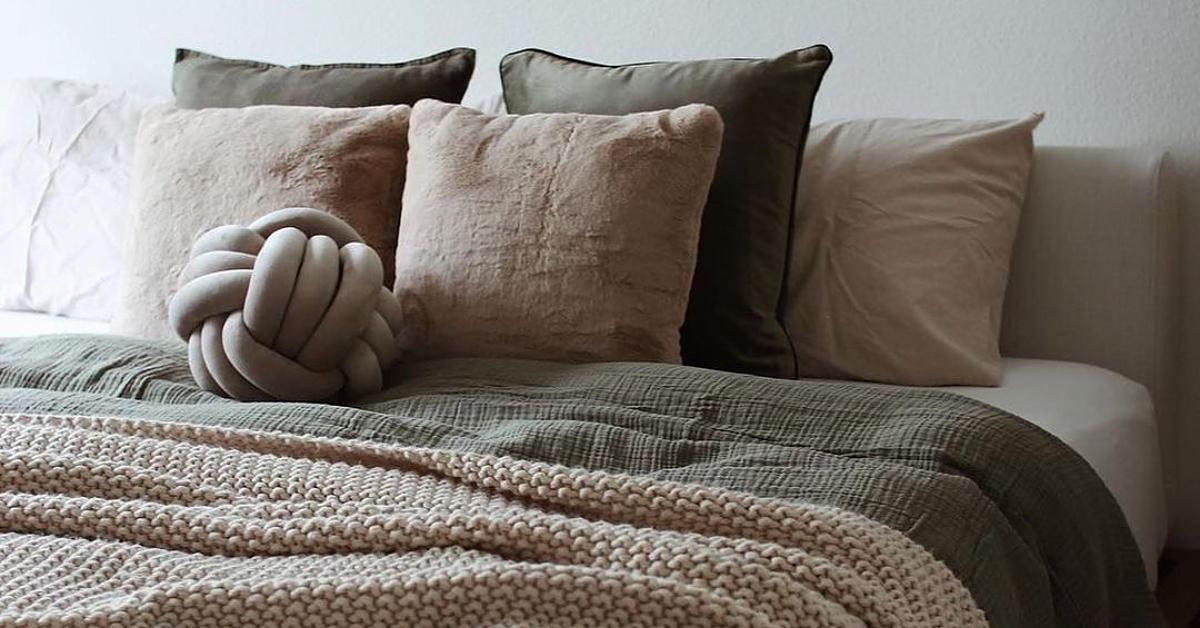Is Quince as Sustainable as the Brand Claims? The Truth About This "Luxury for Less" Direct-to-Consumer Label
Published Dec. 13 2023, 11:53 a.m. ET

The Gist:
- Quince is an affordable direct-to-consumer retailer that sells clothing, accessories, and home goods.
- Low prices have shoppers suspicious of Quince's legitimacy and claims of sustainability.
- Co-founder Sid Gupta claims to prioritize affordability and sustainability with Quince's business model, but we detect greenwashing.
Direct-to-consumer apparel and home brand Quince has an attractive selection. The company's curated Instagram page is essentially "beige mom" bait.
Built on challenging the long-held belief that "nice things have to cost a lot," San Francisco-based Quince is proud of its dedication to transparency and its three core values: Quality, sustainability, and affordability.
Still, shoppers question the brand's legitimacy, as prices seem too good to be true. Could a genuine mulberry silk — a non-vegan and pretty cruel fiber — pillowcase really cost just $39.90? It's time for a bargain fashion investigation.

Is Quince legit? Let's talk pricing.
Overall, Quince seems to be legit in that customers receive items that align with the online listings, unlike certain other DTC online brands. However, some reviews of Quince have pointed out small flaws in various Quince clothing items (more on that below).
Co-founded by CEO Sid Gupta, the wallet-friendly brand Quince gives consumers access to various factories, selling products made of luxury materials at a fraction of the typical retail price.
"We basically came up with the idea to take our [retail, supply chain, and technology] expertise and apply it to the supply chain and make nice things available to everyone for a lot less," he told Forbes of his and his wife's company.
Take the $49.90 Globe Boho Hoops, for instance. According to Quince, products similar earrings cost around $80 at Bloomingdale's and $110 at Missoma.
By eliminating middlemen and using a "manufacturer to customer" (MTC) business model, the average person can afford timeless items they'll be able to wear many times. Forbes wrote that Quince supplies the demand in real time, which creates less waste.
“We’ve never had to throw away anything," Gupta said. However, there isn't any proof of this on Quince's website.
Is Quince sustainable?
When compared to fast fashion, Quince definitely has a bit of a leg up thanks to its "MTC" model — but overall, there isn't enough evidence that the brand is really as sustainable as it claims.
The MTC model is definitely a good thing, as it means less zigzagging to the final destination, thus less emissions and lower prices. (Though Quince's lack of factory transparency likely contributes to its low prices too... more on that in a moment.)
Quince also avoids producing oil-based synthetics, opting for organic cashmere, alpaca wool, cotton, linen, silk, and recycled polyester. And while animal-based textiles are often classified as "natural" fibers, we at Green Matters denounce the silk, cashmere, alpaca, and wool industries for both moral and climate crisis-related reasons.
Not only is the wool industry unbearably cruel, but raising sheep depletes natural resources, leads to soil erosion and decreased biodiversity, and contributes to global methane emissions, as per The Ecologist.
Animal-based fabric industries — including silk, cashmere, leather, and wool — have garnered puzzlingly favorable reputations in sustainable fashion circles. In reality, the fabrics often have high environmental impacts, are not truly renewable, and cause significant harm to animals. For those reasons, Quince's cotton, linen, and recycled polyester products are more impressive to us than its animal-based offerings.
As for labor ethics, Quince says it only works with factories that "meet or exceed global guidelines for workplace safety and equitable wages." However, Good On You, a website that gives fashion brands ratings based on sustainability and ethics, points out that Quince does not provide any evidence to actually back up this vague claim — among other vague claims.
Overall, Good On You gave Quince a low overall rating of "Not good enough," with the company scoring a 2 out of 5 in all three categories (planet, people, and animals). Good On You concluded that Quince: does not provide enough transparency about its policies on workers' rights and child labor; it uses many animal-based products with scant information on animal welfare; and it doesn't supply clear information about reducing waste, hazardous chemicals, water use, et cetera.
A TikTok creator made note of Quince's strange pattern of repeat reviews.
Overall, lots of good is stitched into this brand. However, TikToker Jennifer Wang called out two red flags.
Pointing to a model wearing Quince's uber-popular $50 cashmere sweater, Wang explains that the neckline appears to be stretched out.
"This is what the necklines of my super old T-shirts look like," she says in her October 2023 video.
The aforementioned sweater currently has 4.9 out of five stars with over 9,000 reviews.
"When I see this, I assume they're fake," she says, pointing to two different five-star reviews of the same sweater from a customer called Greta. She fully believes "they're bots."
After scanning the Quince site, one of the lowest overall ratings we found was a 4.2.
A reviewer named Judith R. gave the 100% Organic Cotton Slub Tank three stars, writing that she adored the piece, but "the arm holes were huge."